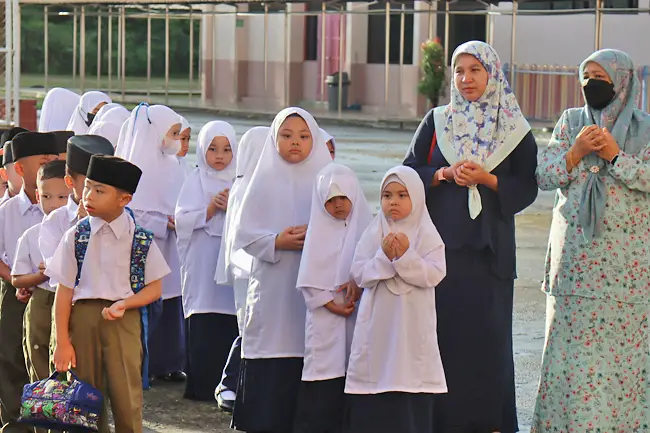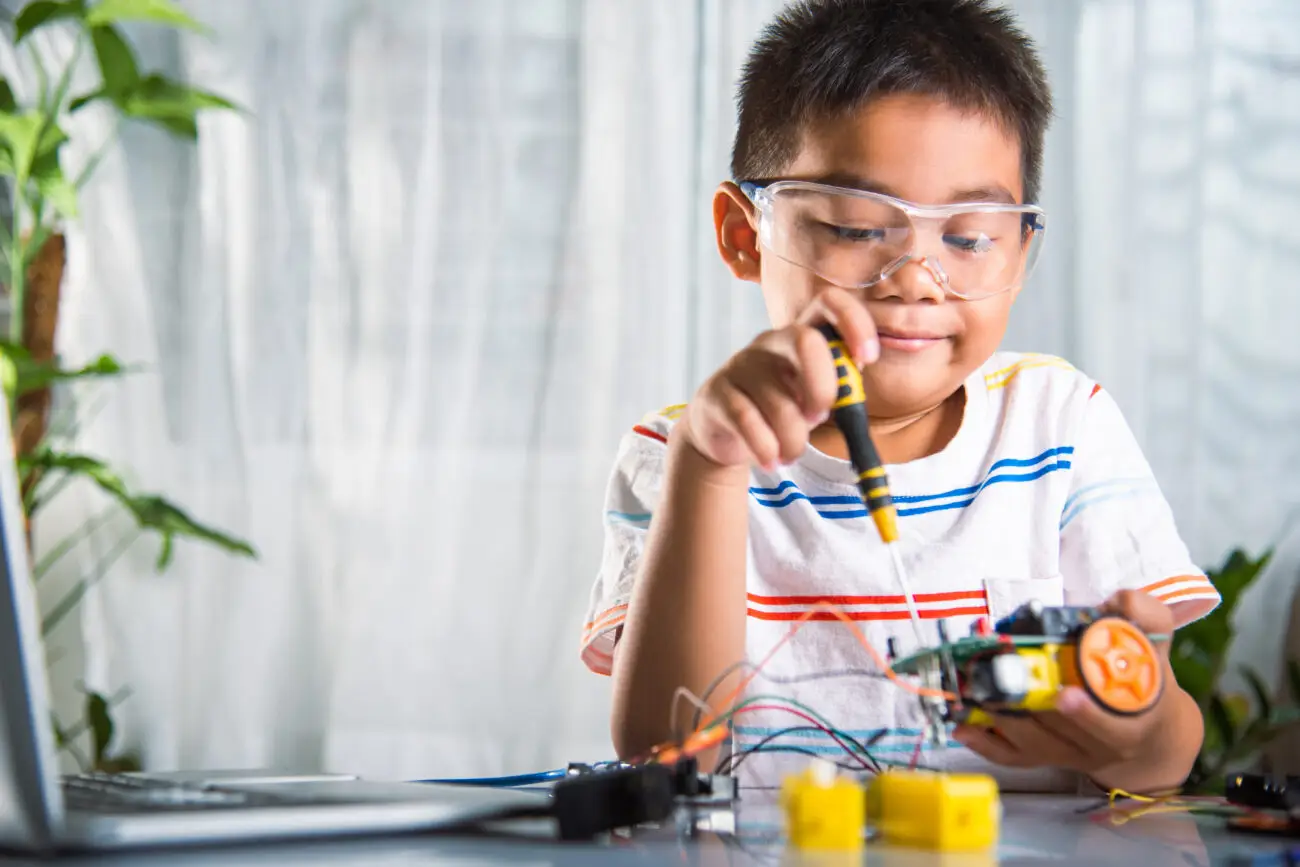EDUCATION
Fostering A Well Rounded Generation
Brunei is transforming education through its STEAM approach, incorporating science, technology, engineering, arts, and mathematics to inspire creativity, critical thinking, and problem-solving.
November 2024 marked one Religious Subjects into the General Education System. Starting with students from pre-school to Year 3, Islamic Studies expanded beyond traditional religious schools into government, private and international primary schools across Brunei. Several steps have been taken to refine the Islamic Studies curriculum for the coming years, such as content for the new Year 2 Islamic Studies textbook.
This textbook will incorporate materials updated by the State Mufti’s Office for use in 2025.
The updated curriculum is introduced in stages starting January 2025 with Year 2 students, followed by Year 3 in 2026, Year 4 in 2027 and Year 5 in 2028. The development process involved collaborations with Brunei’s leading universities, ensuring the curriculum is both engaging and developmentally appropriate. It also included consultations with Islamic Studies teachers through surveys, allowing the committee to incorporate feedback from those on the front lines of education. The feedback loop was critical in refining the syllabus, providing a balanced approach to meet both academic and religious educational needs.
Brunei’s Islamic education system places a strong emphasis on fostering moral values and spiritual development alongside academic achievement. The integration aims to cultivate a generation that is rooted in Islamic values, resilient, and prepared for the world ahead.

A Holistic Approach

Brunei is transforming education through its STEAM approach, incorporating science, technology, engineering, arts, and mathematics to inspire creativity, critical thinking, and problem-solving. From primary schools, students engage in real-world issues such as climate change, blending art and technology to develop global readiness.
The Ministry of Education’s Science, Technology and Environment Partnership (STEP) Centre spearheads these efforts, offering programmes such as ‘F1 in Schools’ and ‘Green School Gardening’ to enhance accessibility and foster innovation. These initiatives aim to nurture teamwork and curiosity, shaping
Brunei’s future leaders. Ultimately, this holistic approach strengthens Brunei’s educational foundation, equipping learners for the demands of tomorrow’s world.
Brunei’s educational institutions are also increasingly collaborating with international counterparts, leveraging global expertise to enrich local learning environments. Key initiatives, such as Universiti Brunei Darussalam’s (UBD) collaboration with the University of East Anglia (UEA), are paving the way for cutting-edge research and academic exchanges. This partnership underscores the importance of interdisciplinary learning, blending technical expertise with creativity to prepare students for a diverse range of careers.
Moreover, these efforts reflect Brunei’s aspiration to cultivate a generation adept at navigating an increasingly digital world. The memorandum of understanding between UBD and UEA epitomises this strategy, facilitating exchange programmes and joint research that expose students to global perspectives.
These initiatives are vital in equipping Bruneian students with the adaptability and cultural awareness needed to thrive in an interconnected world. While the progress is commendable, challenges remain. The need to balance rapid technological integration with the preservation of cultural and religious values is a delicate task. Ensuring equitable access to these advancements for students across socio-economic strata also requires sustained efforts and resources.
Brunei’s educational reforms exemplify a nation striving to harmonise its rich heritage with a forward-looking agenda. By championing innovation while staying true to its roots, Brunei is shaping a generation poised to lead with knowledge, faith, and a global outlook.
